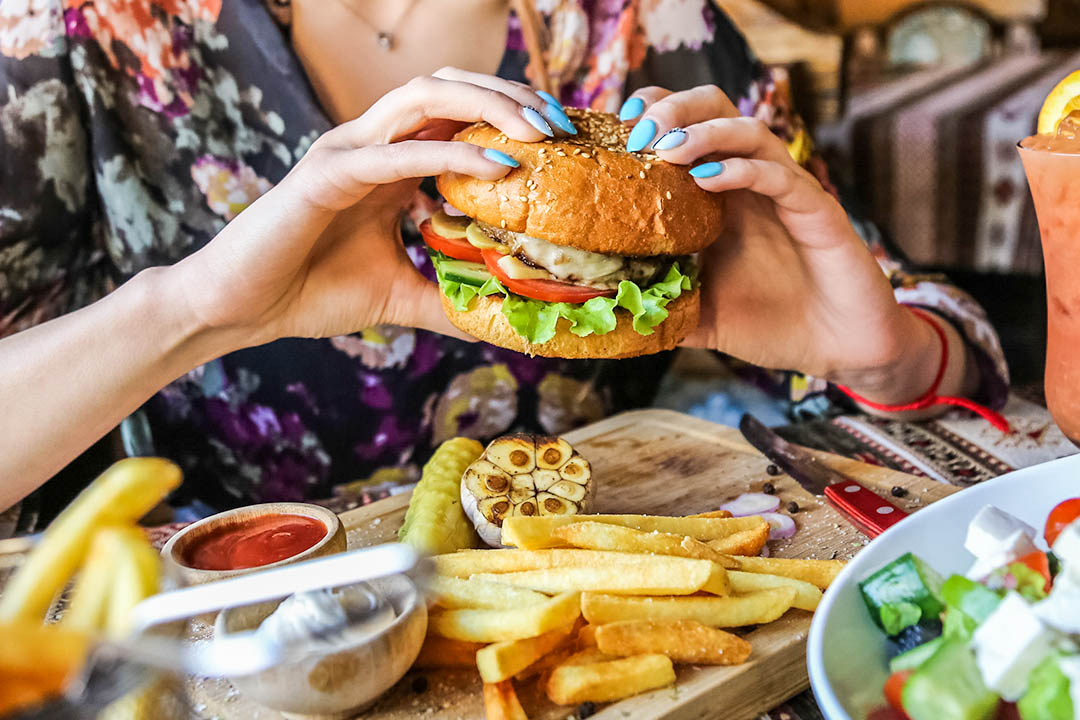08 May How to Reduce Your Risk of Developing Kidney Stones
by Ashleigh Feltham, Accredited Practising Dietitian and Accredited Nutritionist
Around 10% of people will suffer from kidney stones in their lifetime. An increase in sedentary lifestyle, poor diet choices, and obesity puts you at greater risk of developing kidney stones.
Two of the four types of kidney stones are linked to your diet. Calcium oxalate causes 80% of kidney stones and is the result of a diet high in oxalate and not enough calcium or fluids. When you are dehydrated or your diet is too high in protein, it can make urine too acidic and cause uric acid stones.
If you have had a kidney stone, you are at greater risk of developing another kidney stone. The type of stone you have determines the type of diet you should follow.
General Dietary Advice to Help Prevent Kidney Stones
Maintain a Healthy Gut Microbiome
The gut microbiome is a powerful conductor of your overall health. This includes reducing the risk of developing kidney stones.
Health promoting gut microbes may help to maintain a normal healthy balance of oxalate in the body. Inulin is a type of prebiotic fibre can be found in foods such as onion, asparagus, garlic, wheat, and bananas. When health promoting microbes consume prebiotic fibre, they produce different short-chain fatty acids.
One type of short-chain fatty acid is called butyrate. Butyrate helps to keep your intestine epithelium healthy, affecting how much oxalate is absorbed to reduce the risk of kidney stones.
To help promote the microbes that create healthy short-chain fatty acids like butyrate, it is important to include a variety of plant-based foods. This ensures your gut has access to different prebiotic fibres and polyphenols.
To promote an optimal variety and amount of health promoting microbes, include 30 different plant-based foods each week. These include wholegrains, nuts, seeds, vegetables, fruit, beans and legumes.
Stay hydrated
Adequate fluids are essential to help prevent kidney stones. Fluids can help stop the build-up of kidney stone substances and help ease their passage if you do develop one. The best way to judge sufficient hydration is to check the colour of your urine. Aim for a pale-yellow colour.
Cut back on salt
Too much sodium can increase calcium in the urine, and this can raise the risk of kidney stones. Stick to foods with less than 120mg of sodium per 100g serving.
Mind your calories
Most people are not within the healthy weight range. Be mindful of the quantity and quality of your calorie intake. Keeping your body at a healthy weight results in lower salt intake.
Up your potassium
Low potassium can increase blood pressure and pull calcium out of your bones. Foods and beverages high in potassium include fruit, vegetables, dairy and legumes.
Specific to Calcium Oxalate Kidney Stones
Include enough calcium
To reduce your risk of calcium oxalate stones, make sure you include enough dairy and calcium in your diet from food and beverage sources. Calcium binds with oxalate and is removed in your stool.
Avoid excess vitamin C supplementation
Excess vitamin C supplementation can increase your risk of oxalate stones. Aim for whole foods like fruit and vegetables to achieve your daily needs of vitamin C.
Avoid excess calcium supplementation
Excess calcium supplementation can lead to kidney stone formation.
Specific to Uric Acid Kidney Stones
Organ meat and wild game
Eat these foods no more than once a week. These foods are high in purines, which contribute to higher uric acid production. Also, certain seafoods such as trout and herring are high in purines.
Decrease overall meat consumption
A high protein diet from meat is linked to uric acid stones. Aim for a few days in your week without meat. When you do enjoy meat, aim for a meal containing one quarter meat.

Take home message:
Your eating habits may help reduce your risk of being one of the 10% of the population who experiences a kidney stone in their lifetime.
References:
Miller, A.W., Penniston, K.L., Fitzpatrick, K. et al. Mechanisms of the intestinal and urinary microbiome in kidney stone disease. Nat Rev Urol (2022).




